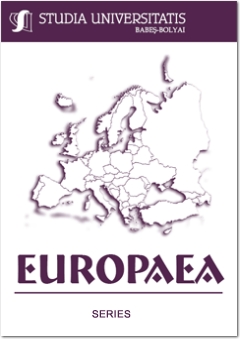NOT QUITE CITIZEN: THE POLITICS OF CITIZENSHIP DISPOSSESSION ENGAGING A TERRITORIAL ETHICS OF BELONGING
NOT QUITE CITIZEN: THE POLITICS OF CITIZENSHIP DISPOSSESSION ENGAGING A TERRITORIAL ETHICS OF BELONGING
Author(s): Ioana VrăbiescuSubject(s): Economy
Published by: Studia Universitatis Babes-Bolyai
Keywords: dispossession; neoliberalism; ethics of belonging; territorial identity; Roma families.
Summary/Abstract: The article engages with the debate on politics and practices of citizenship dispossession that affect individuals and families pushed to precarious housing conditions. Taking recent evictions cases in Bucharest, Romania, the paper tackles the right to housing as a citizenship right. Following Foucault (1984) understanding of space as ‘fundamental in any exercise of power’ and the individual in its political territorial sense, the citizenship dispossession is a direct result of state actions. The paper discusses how in citizenship space becomes territorialized, and people are dispossessed by their right to exercise citizenship by placing a “doubt” on their territorial identity. In any modern circumstances citizenship is considered to be something that nobody can take away unless a person is classified in a state of abnormality. Still, in Romania, the state proves capable to withdraw rights guaranteed by citizenship according to a territorial ethics of belonging and consequent political methods. Thus, individuals and families without means to show their housing existence, which are defined by the state, are deprived of their rights by having the identity card issued for a temporary period of one year – a condition that deeply affects their daily life, the freedom of movement, and their human existence as these limitations are transferable to children, etc. The territorial aspect of citizenship is embedded in nation-state. Limiting the mobility for citizens dispossessed previously by a territorial protection appeals to what Soysal calls “a citizenship model [where] the ‘outsiders’ are not only immigrants, but also the ‘lesser’ Europeans, who have the added burden of proving the potential and worth of their individuality.” (2012, p. 3). The neoliberal turn and the return to nation-state centred citizenship charges the individual responsibility and exonerates state’s territorial violence.
Journal: Studia Universitatis Babes-Bolyai - Studia Europaea
- Issue Year: 60/2015
- Issue No: 1
- Page Range: 97-124
- Page Count: 28
- Language: English

